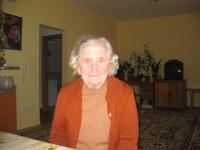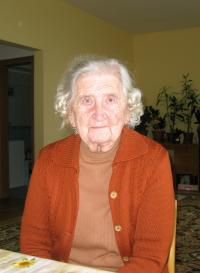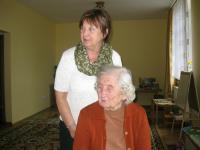I have never visited the places of my childhood again

Download image
Jarmila Patočková, née Peřinová, was born September 16, 1922 in Neustupov in the Benešov district. Her father was a former legionnaire who worked as a clerk for the Land Office in Svaljava and later in Mukachevo in Carpathian Ruthenia. The Peřina family lived there until 1932. Jarmila attended a Czech school in Mukachevo as well as the local Sokol sports organization, and she and her family were involved in the social and cultural life of Carpathian Ruthenia. After their return to Czechoslovakia they lived in Havlíčkův Brod and from 1934 in Kolín. At the end of the 1930s she spent several weeks in a German family in Králíky where she witnessed the construction of the border fortifications. At the beginning of the war her father was allowed to retire earlier thanks to his past service as a legionnaire. Jarmila studied the trade academy in Kolín and then she began working as a clerk in the Health Insurance Company. At the end of the war she experienced four Allied air raids on Kolín-Zálabí. She married and she started a family and she worked as a clerk in the insurance company and in the social security department. Jarmila Patočková has lived in Kolín for more than eighty years and her life-long hobby is hiking.


